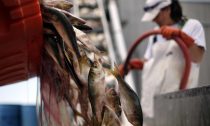
A big decision about the future of a little fish is attracting the attention of ocean conservation groups who say they are concerned about whether menhaden fishing can be considered sustainable. Industry players are petitioning the London-based Marine Stewardship Council to offer its well-known sustainability certification to the Atlantic Ocean and Gulf of Mexico fisheries for menhaden, a small schooling fish that plays a vital role in the ocean food web.
But menhaden is a little different than many of the species verified by the council, which mostly certifies food fish that are well-known to consumers, such as tuna and sole. Menhaden isn’t served in restaurants or seafood counters — it’s used for products such as fish oil, pet food, aquaculture feed and bait.
It’s also the subject of one of the biggest fisheries in the United States. Fishermen from Maine to Texas have caught more than a billion pounds of menhaden every year since at least 1950, with most coming to shore in Louisiana, Virginia and Mississippi in recent years.
Environmental groups such as the New Orleans-based Recirculating Farms Coalition said they are concerned there isn’t enough data to certify the fishery as sustainable and they fear certification is being rushed through. Recirculating Farms Coalition and Gulf Restoration Network, also of New Orleans, have both called for the certification to be denied.
“If they get certified, it will increase usage of their product and increase the need for Gulf of Mexico menhaden,” said Marianne Cufone, executive director of the Recirculating Farms Coalition.
The Marine Stewardship Council’s sustainability marker, prominently displayed on seafood packages in grocery stores, is one of the most recognized seafood labels in the marketplace. The company requesting the certification is Omega Protein, which is the largest harvester of menhaden in the Atlantic and the Gulf.
A sustainable certification for menhaden is important because companies that use menhaden products are starting to require it, said Ben Landry, a spokesman for the Houston-based company. He said it’s becoming especially common for aquaculture firms to require that feed be certified responsibly harvested.
Landry said the company is hopeful to obtain certification sometime in early 2018.
“It’s the gold standard in seafood certification. It signals to consumers that you’re truly a sustainable company that harvests these fish,” he said.
A third-party auditor called SAI Global is assessing the menhaden fishery, said Jackie Marks, spokeswoman for Marine Stewardship Council. She said the fishery must be assessed for its impact on the ecosystem and the quality of its management before it can be certified.
The status of the menhaden stock must also be assessed before certification can be granted, Marks said. The fishery might ultimately have to make improvements before it can become certified, she said.
It’s possible that the certification process could provide changes that are beneficial to the health of the menhaden population, said Chris Moore, senior scientist with the Chesapeake Bay Foundation in Annapolis, Maryland.
“Certification protocols can give consumers a better idea of the overall health of the fishery,” he said.










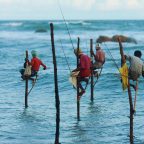
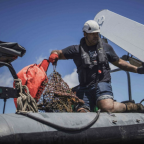
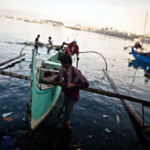
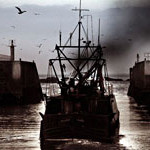

Social Profiles